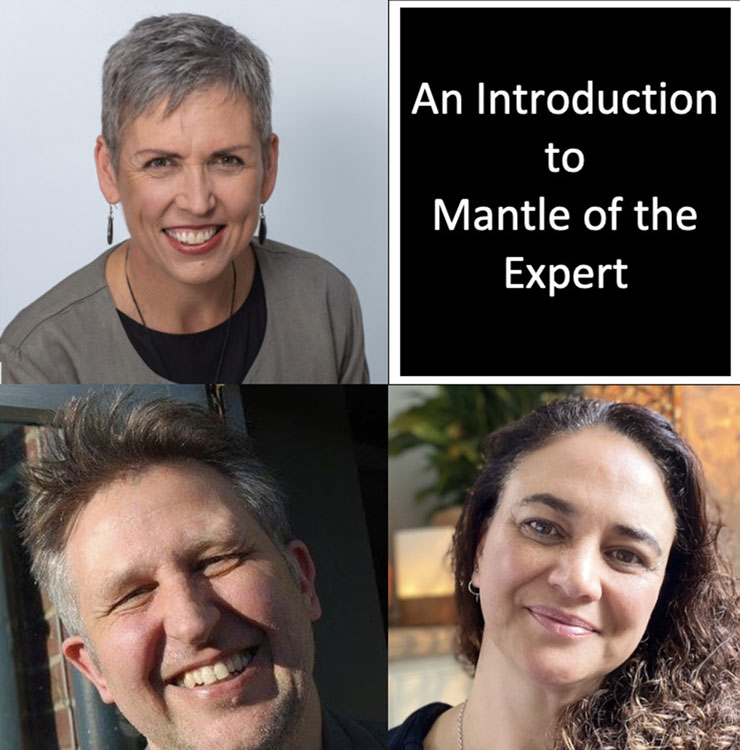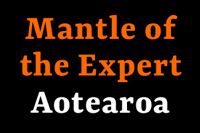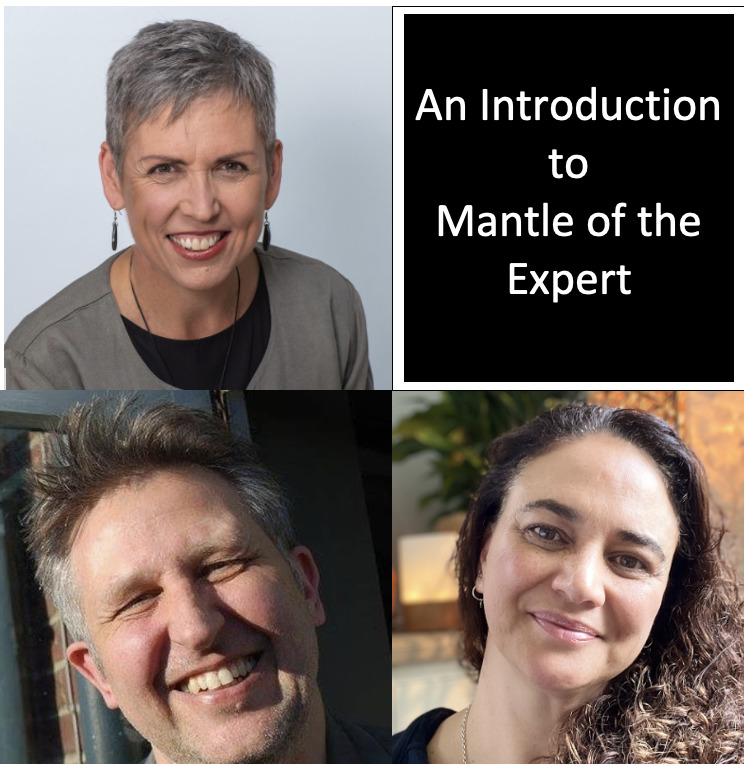 If you enjoy listening to / learning from podcasts, how about joining a listening / study group based around the Introduction to Mantle of the Expert podcast series, starting August 29th. It’s free of charge and open to anyone who is interested.
If you enjoy listening to / learning from podcasts, how about joining a listening / study group based around the Introduction to Mantle of the Expert podcast series, starting August 29th. It’s free of charge and open to anyone who is interested.
Read on for a bit more context and if you’re keen to be part of the group, send an email to mantleoftheexpertnz@gmail.com and I’ll send through the zoom links.
Background context
In 2021-2 during the second Covid lockdown Tim Taylor (UK) Whakarongo Tauranga (NZ) and I started getting together to record a podcast series An Introduction to Mantle of the Expert. You can read more about the presenters here. This was our second podcast. The previous series Effective Teaching and Learning in Mantle of the Expert was created in 2020 and released to a group of subscribers who paid to be part of a study group.
An Introduction to Mantle of the Expert was created to align with the Foundations in Mantle of the Expert course at the Mantle of the Expert Winter School 2022/3. The first big idea was to have ten episodes, each based around one of the core elements (whenu) of Mantle of the Expert. The second big idea was to illustrate the discussion with reference to The Wooden Arms; a Mantle of the Expert experience planned and taught by staff at Knighton Normal School and also shared at the Mantle of the Expert Winter School.
We recorded ten episodes, which I’ve been painstakingly editing over the last two years. This process is still ongoing. To date, episodes 1-5 are completed and episodes 6-10 are still in development. As each episode is completed I upload it to the ‘Buy Me a Coffee’ platform, where listeners can access them and, if they wish, pay a small donation (the price of a coffee – or several coffees) towards the cost of production.
Episodes are around 20-30 minutes long. Sound quality is mixed – but I reckon the quality of content makes up for this! So far there’s also been a bonus track alongside each main episode, containing material that deviated away from the main topic, but was too good to delete! Each episode has accompanying notes.
Rationale for the group
While the podcast is available to anyone to access at any time, the Dramatic Inquiry Trust is funding a free study / listening group starting on Tuesday 29th August, to provide:
- Follow up and deeper learning for Winter School participants
- Opportunities for ongoing planning support in Mantle of the Expert
- Opportunities to reflect more deeply and discuss the core elements in more detail
- A sense of community – get togethers over zoom with like minded teachers around the country
- Focus and ‘accountability’ – a reason to listen to the next episodes and complete the series in a certain time
- Opportunities to ask questions and chat live with the presenters and teachers featured in the episodes
- Incentive for me to get the rest of the episodes edited and uploaded!
Dates and format

All sessions will be one hour long, held over zoom. Note, the times are NZ local time. I’ll be facilitating the sessions and Whakarongo and Tim will be dropping in from time to time as well. We’d love for you to join us.
To enrol, just email mantleoftheexpertnz@gmail.com and I’ll send you full information and the links.
This is a gentle invitation to listen / study at your own pace and interest level with no obligation and no pressure … if you can’t make it to one of the sessions – no problem. And if you haven’t finished listening to the podcast episodes in a particular week you can still come along, enjoy the chats, and catch up later!
The listening / study group is being offered with the support of Networks of Expertise funding through the Dramatic Inquiry Network Aotearoa Trust.



